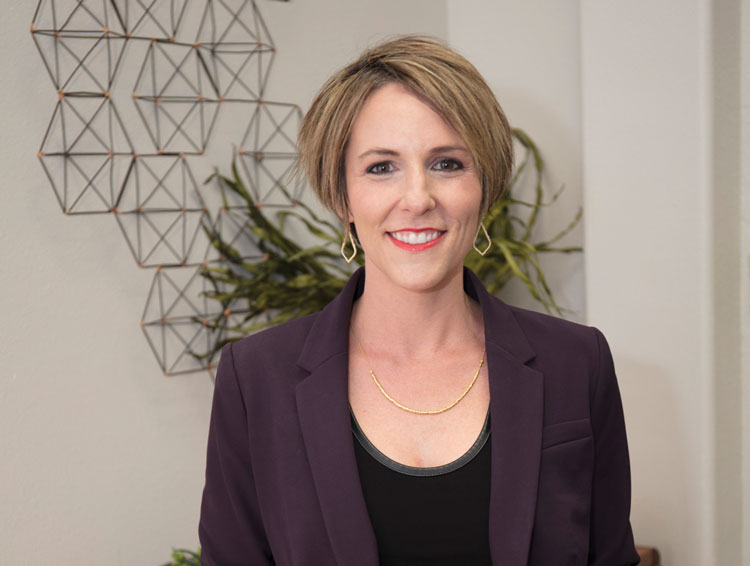2018 Legal Rebels: Knocking down the barriers of convention and building the profession anew

Photograph by Bob Torrez
Today’s law practice is a construction zone. With so many new ideas, approaches, tasks and services, the profession can seem like a Chicago summer. (That’s when the city crews are out fixing all the streets devastated by Chicago winters.)
All that activity can seem like chaos, but these legal services projects promise more effective, more efficient and more amenable paths to helping clients and building a practice.
So it’s only right that this 10th edition of the ABA Journal Legal Rebels celebration adopts a hard-hat theme. This year’s 11 innovators are building roads to justice, efficiency, technology and knowledge. Their efforts include bringing legal services to outback Alaska, ranking law firms and law schools for their work with legal technology, setting the rules for blockchain, using a law firm as a lab for change, giving performance reviews to corporate law firms, using data to link clients to experienced attorneys, developing best practices for immigration law, using a privately funded nonprofit to keep legal aid costs down, training law students in a business mindset, and offering a Star Wars-style shortcut to competitive advantage.
Check out the miniprofiles in the pages following, written by Lorelei Laird, Angela Morris, Stephen Rynkiewicz, Jason Tashea and Stephanie Francis Ward. But don’t forget to dive into the longer posts on each Rebel online at LegalRebels.com. There you can find—or add—legal practice strategies, listen to podcasts with Legal Rebels Trailblazers who helped start the legal services revolution, and check out profiles of past Rebels.
Speaking of former honorees, see new interviews with Rebels who have moved on to new challenges. As any contractor or innovator can tell you, construction season never ends.

Photograph of Billie Tarascio by Bob Torrez.
Her Law Firm Is Her Lab
Billie Tarascio is experimenting on her law firm for the profession’s greater good.
With Modern Law, a divorce law practice in Mesa and Scottsdale, Arizona, and a legal technology company, Access Legal, Tarascio has developed a laboratory she believes creates practices that can make attorneys happier and more efficient, and let them better serve the public.
Through her experiences and driven by metrics, Tarascio has developed four steps to create and assess changes to her firm. First, the team defines its goals. Next, metrics are set around intended outcomes. Then the team hypothesizes potential process or policy changes that may meet its goals. Finally, if the experiment pans out, team members look for software to automate and institutionalize the change.
And though Tarascio is a believer in legal technology, she has learned clients want more than machine efficiency. “I think consumers value our experience and advice,” she says. “It is very clear that they want connection and communication.”
Recently, Tarascio teamed up with CuroLegal, a legal technology company, and others to create CuroStudio to develop projects that help close the ever-growing gap in access to justice. Together they are creating a new project, Modern Law Practice, a “plug-and-play law firm model” to help solo practitioners and small firms automate process and procedure and adopt technology.
“This is what Billie has lived and breathed for 10 years at her firm,” says Chad Burton, CEO of CuroLegal. “And her firm has been supersuccessful as a result.”
—Jason Tashea

Photograph of Basha Rubin and Mirra Levitt by Arnie Adler.
Doing It with Data
While business owners and in-house counsels usually find outside counsels through referrals, Basha Rubin says that often doesn’t lead to a good result in terms of cost and experience. The New York City lawyer believes that data can fill the gap.
In 2013, she co-founded Priori, a legal services platform that pairs attorneys with clients based on detailed experience information, with her law school classmate Mirra Levitt. The service is free for the attorneys in the database who agree to discount hourly rates by at least 25 percent. Clients pay 10 percent of the discount to Priori, which covers things such as request-for-proposal process management and facilitation of both billing and payments.
Businesses submit requests for proposals, and the Priori system matches the requirements with data collected about attorneys in the roster and from feedback from engagements. The client usually gets attorney matches in less than one business day. Database information includes the kinds of deals an attorney negotiated, who the parties were, court appearances they’ve had, which judges they’ve faced, and how the matters were resolved. Approximately 10 percent of attorney applicants are admitted to the Priori roster.
“We care about the depth of their expertise,” Rubin, 33, says. “We don’t work with attorneys who say they are generalists because we found that our clients are less satisfied with those people.”
The database screening process also includes what Levitt, 37, refers to as a “social intelligence test,” which involves a conversation in person or on Skype with someone from Priori.
“Priori comes from the Latin phrase a priori and was intended to communicate that if you hire an attorney proactively rather than reactively, you’ll ultimately save time and money,” Rubin says.
—Stephanie Francis Ward
Write a letter to the editor, share a story tip or update, or report an error.



